Manufacturing Growth: Trust & Flexibility Key - Vaishnaw
By Rediff Money Desk, DAVOS Jan 17, 2024 21:56
Union Minister Ashwini Vaishnaw highlights trust and flexibility as crucial for manufacturing's next wave of growth at the World Economic Forum.
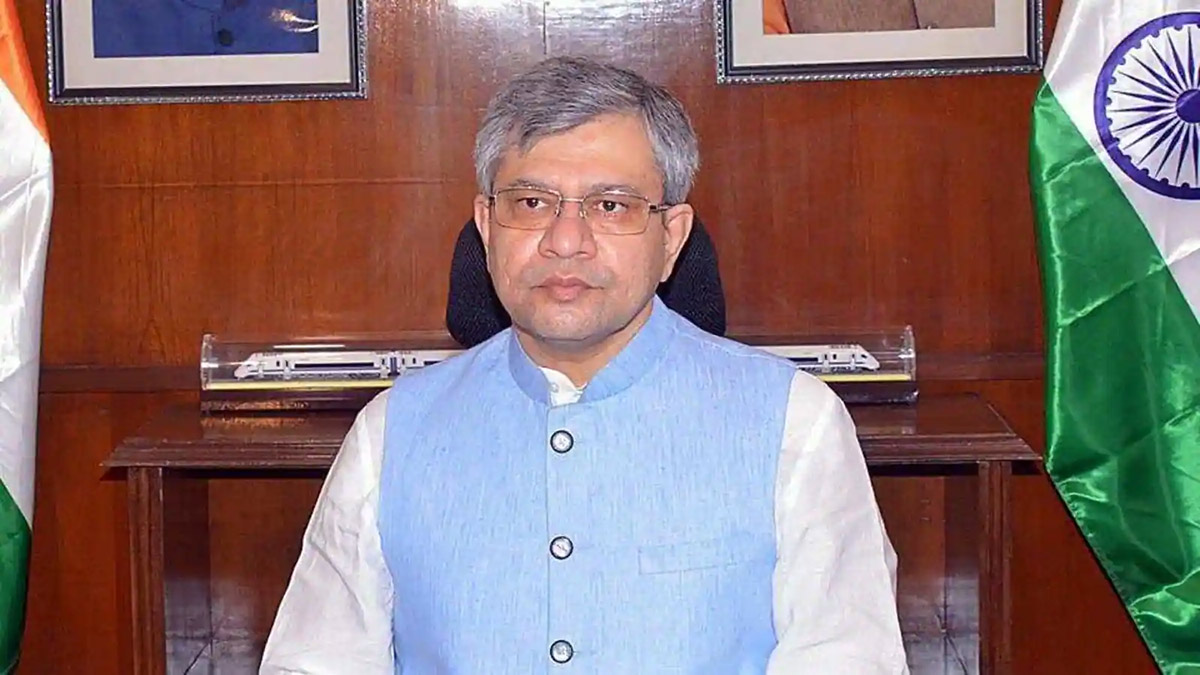
Photograph: ANI Photo
Davos, Jan 17 (PTI) Union minister Ashwini Vaishnaw on Wednesday said trust and flexibility will be two key factors as the manufacturing sector gears up for its next wave of growth.
He was speaking at a session on 'Manufacturing's Moonshots' here at the World Economic Forum Annual Meeting 2024.
He also said the government and private sector would need to collaborate closely on the talent front and look at a proactive way of building the right skill sets.
The panelists, which included CEOs of global manufacturing majors, also discussed breakthrough technologies such as nanomachines and AI for demand-planning and forecasting that are set to achieve industrial scale and viability.
They discussed that the industry is preparing for the next generation of manufacturing technologies on the horizon to drive innovation, productivity and growth.
Talking about what are the manufacturing moonshots likely to transform business and industry, impacting economies and societies, Vaishnaw said there are many, but trust and flexibility will be the key factors.
There are a lot of technological advancements that are happening and also a lot of work is going on to promote clean energy.
"At the same time the value of trust is very important. If you are making sure you are meeting contractual commitments, that is also trust. Ensuring that clean energy is being used, that is also trust. Flexibility is also a key factor," Vaishnaw said.
Vaishnaw, Minister of Railways; Communications; Electronics and Information Technology, said the Indian government is focussing a lot on clean energy.
From the government perspective, it will be very important that clean energy goes into manufacturing, he said.
Also, with technologies changing very fast, the government will have to pitch-in for innovation, he added.
"In a world where geopolitical uncertainties are increasing, we need to have much more robust multilateral institutions. We need significantly more multilateral institutions as the ones we have now have outlived their age," he said.
Governments and the public sector must have better understanding of the technology so that they can better understand requirements of the private businesses.
"In India, we have a very robust system of listening to the industry as we have seen in various sectors. We must have an open mind and let the private sector have creative freedom," Vaishnaw said.
He was speaking at a session on 'Manufacturing's Moonshots' here at the World Economic Forum Annual Meeting 2024.
He also said the government and private sector would need to collaborate closely on the talent front and look at a proactive way of building the right skill sets.
The panelists, which included CEOs of global manufacturing majors, also discussed breakthrough technologies such as nanomachines and AI for demand-planning and forecasting that are set to achieve industrial scale and viability.
They discussed that the industry is preparing for the next generation of manufacturing technologies on the horizon to drive innovation, productivity and growth.
Talking about what are the manufacturing moonshots likely to transform business and industry, impacting economies and societies, Vaishnaw said there are many, but trust and flexibility will be the key factors.
There are a lot of technological advancements that are happening and also a lot of work is going on to promote clean energy.
"At the same time the value of trust is very important. If you are making sure you are meeting contractual commitments, that is also trust. Ensuring that clean energy is being used, that is also trust. Flexibility is also a key factor," Vaishnaw said.
Vaishnaw, Minister of Railways; Communications; Electronics and Information Technology, said the Indian government is focussing a lot on clean energy.
From the government perspective, it will be very important that clean energy goes into manufacturing, he said.
Also, with technologies changing very fast, the government will have to pitch-in for innovation, he added.
"In a world where geopolitical uncertainties are increasing, we need to have much more robust multilateral institutions. We need significantly more multilateral institutions as the ones we have now have outlived their age," he said.
Governments and the public sector must have better understanding of the technology so that they can better understand requirements of the private businesses.
"In India, we have a very robust system of listening to the industry as we have seen in various sectors. We must have an open mind and let the private sector have creative freedom," Vaishnaw said.
Read More On:
DISCLAIMER - This article is from a syndicated feed. The original source is responsible for accuracy, views & content ownership. Views expressed may not reflect those of rediff.com India Limited.
You May Like To Read
TODAY'S MOST TRADED COMPANIES
- Company Name
- Price
- Volume
- IFL Enterprises
- 1.36 (+ 4.62)
- 94560151
- Franklin Industries
- 3.90 (+ 4.56)
- 27162840
- Vodafone Idea L
- 16.13 ( -3.93)
- 20519783
- Indian Renewable
- 259.50 ( -4.68)
- 14093327
- AvanceTechnologies
- 0.90 ( -1.10)
- 11344653
MORE NEWS

Indian Markets Turn Negative After Record Highs
Indian stock markets experienced volatility on Thursday, turning negative after...
ASK Property Fund Invests Rs 190 Cr in...
ASK Property Fund has invested Rs 190 crore in a real estate project being developed by...

Japan Trade Deficit Shrinks as Exports Rebound
Japan's trade deficit narrowed in the first half of 2023, driven by a recovery in...






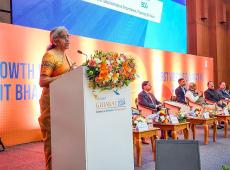
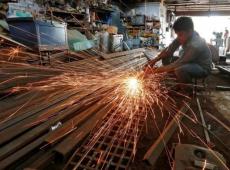
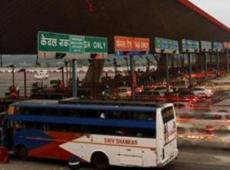

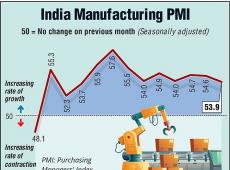

 © 2024 Rediff.com India Limited. All rights reserved.
© 2024 Rediff.com India Limited. All rights reserved.